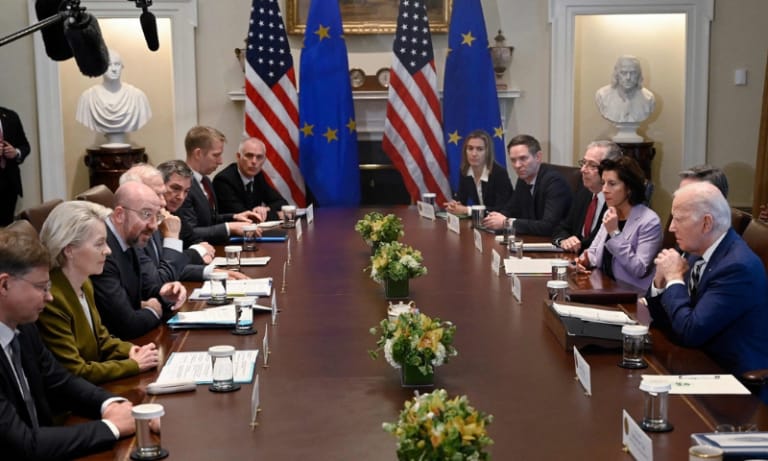
Australian Prime Minister Anthony Albanese embarked on a significant four-day journey to the United States, with the AUKUS nuclear submarine deal as a key focus of his agenda.
Australia’s formal security ties with the United States date back to the early 1950s, and Prime Minister Albanese stressed that the alliance between the two countries remains central to Australia’s foreign policy.
During his official visit to the U.S., Prime Minister Albanese is set to hold his ninth meeting with President Joe Biden within the past 16 months, underlining the enduring and robust relationship between the two nations.
One of the primary objectives of this visit is to engage with members of the U.S. Congress to discuss the necessary legislation for advancing the AUKUS alliance. The AUKUS pact, established in September 2021 with the United States and Britain, grants Australia access to nuclear-powered submarines for the first time, with an estimated cost of up to $244 billion. This trilateral accord is seen as a strategic response to China’s growing influence in the Indo-Pacific region.
Ambassador Kevin Rudd, Australia’s envoy to the United States and a former Prime Minister, highlighted that the AUKUS partnership would be a key focus of Albanese’s visit. Discussions are expected to cover a range of vital areas, including clean energy, information technology, defense technology, and critical minerals. The aim is to broaden the economic relationship between the two nations.
Despite China’s previous criticism of the AUKUS accord, Prime Minister Albanese has taken a diplomatic approach and plans to visit Beijing in early November to meet with Chinese President Xi Jinping.
One positive development in Australia-China relations is the suspension of a dispute over Australian wine exports at the World Trade Organization. Both countries are working to defuse longstanding trade and diplomatic tensions. During his time in Washington, Prime Minister Albanese’s itinerary includes a state dinner and an Oval Office meeting with President Biden, reflecting the strength of the Australia-U.S. partnership. The discussions and initiatives arising from this visit will have a significant impact on the strategic landscape of the Indo-Pacific region and global affairs, as both nations collaborate to address shared challenges and opportunities
